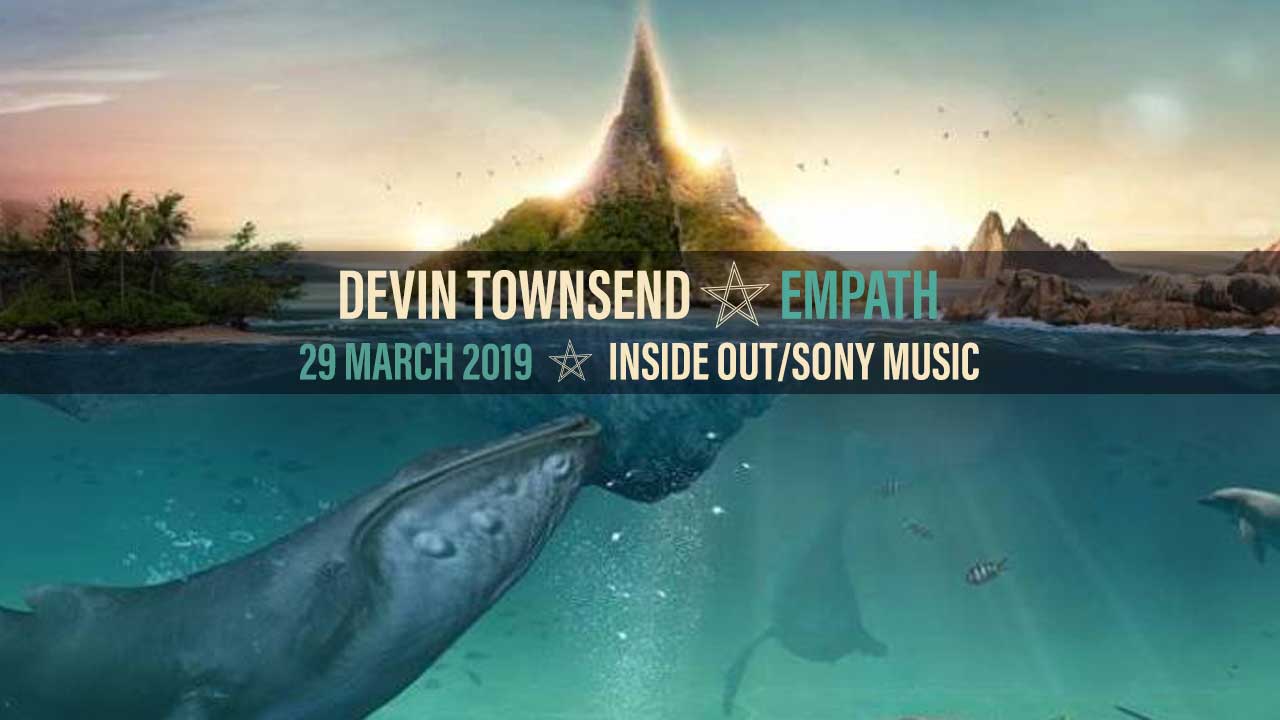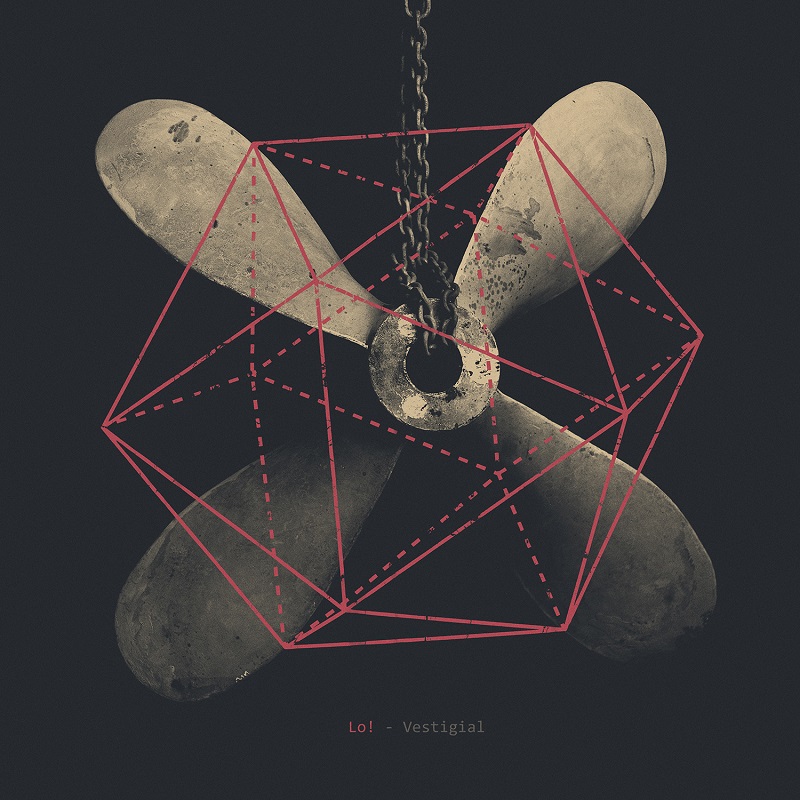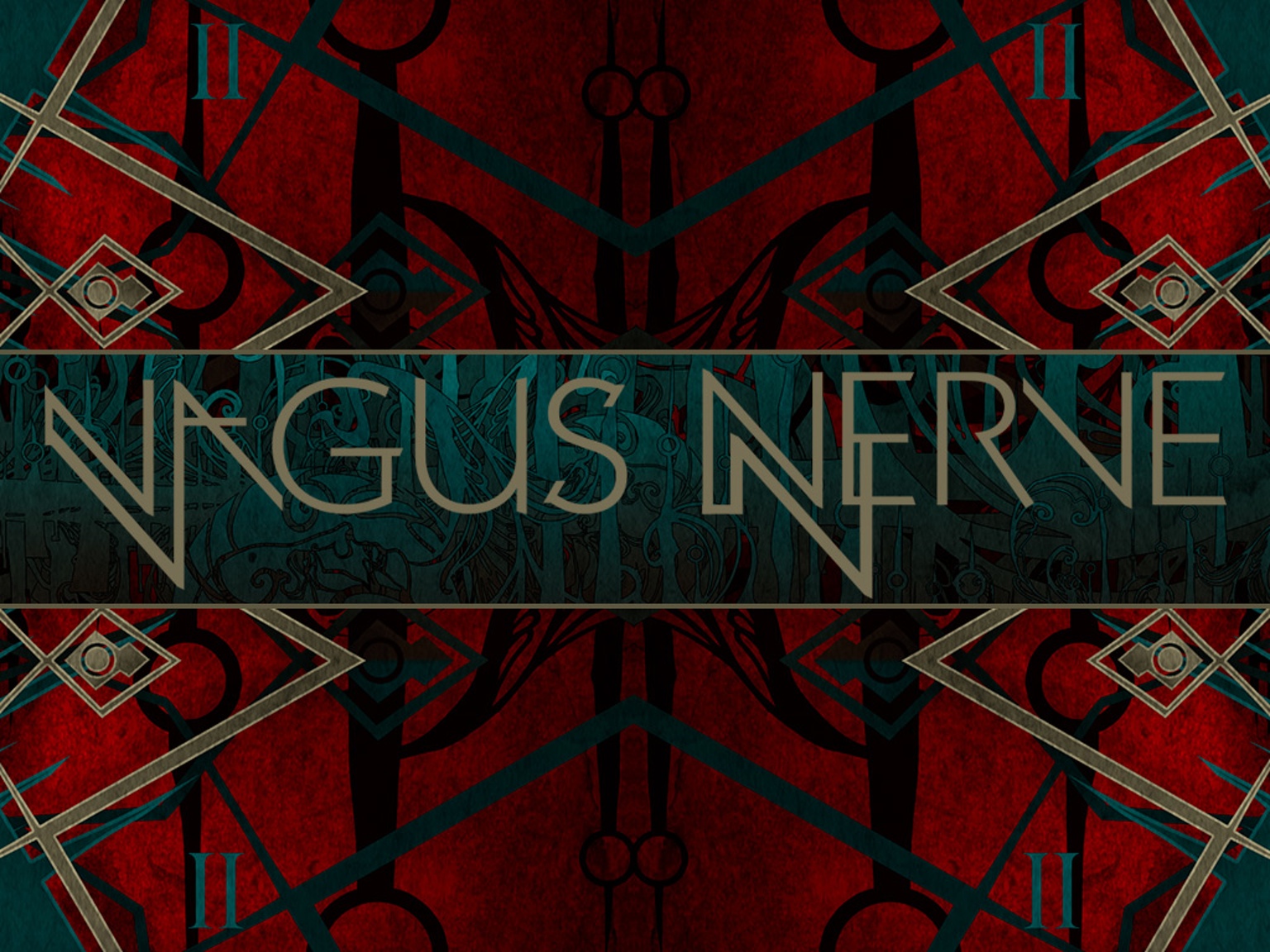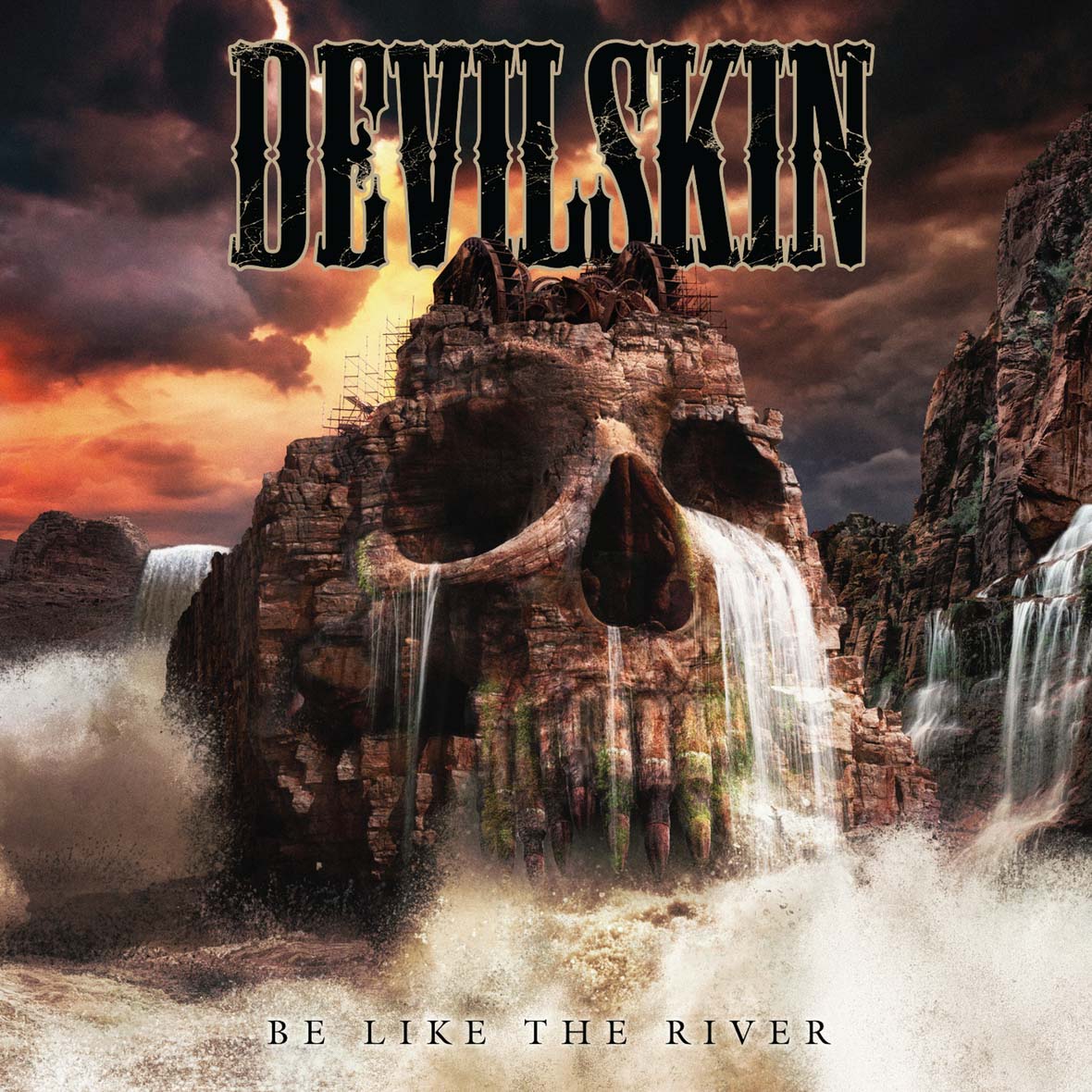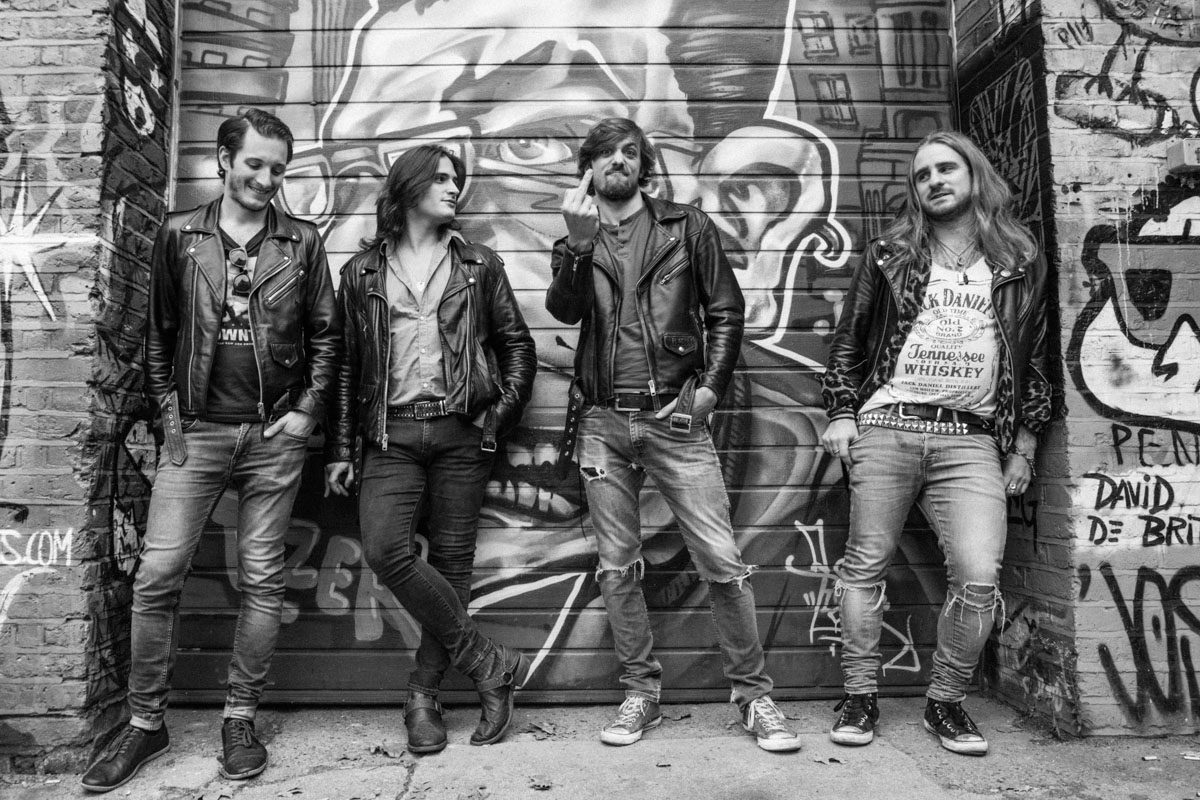 Devin Townsend. What more can be said about this avant-garde, pioneer of progress? From his beginnings singing with Steve Vai to his rage-fueled beat-down Thrash in Strapping Young Lad, Devin has always injected his music with his own individually unique personality. Over the years, it has been a long road filled with many erratic turns and monumental slopes as his career has been steered by his soul. Yes, whether screaming, crooning, or belting out operatically astounding feats of vocal gymnastics, he has bared his soul through the music and allowed it to guide him along the way. Perhaps this deeply personal approach to making music is what has helped him garner the wealth of fans that comprise his base. A telling insight can be gained from an interview I did back in 2003 with Gene Hoglan, the legendary drummer, about the release of Strapping Young Lad’s self-titled album. When I asked him what he credited to the strong working relationship he shared with Devin, he replied, “Dev’s music is the only music that makes me feel. In Hard Rock, Metal, anything, Dev’s is the only music with any substance for me, that makes me feel something.” (That article can be read here: Interview with Gene Hoglan) Those are enormously revealing words from such a prolific percussionist who in addition to playing with Strapping Young Lad and numerous solo projects of Devin, has also been a member of Dark Angel, Death, Testament, and many more bands over the years. Personally, I can attest to the same sentiment as Devin’s music has literally been the soundtrack for many of my memories, positive and negative, intense and somber, and everything in between. Devin keeps things tongue in cheek mostly, though, never taking himself or anything else too seriously which could possibly be one of the major secrets to his longevity. There is hope in the ridiculous for to smile is to kick death out, if only infinitesimally delaying the inevitable.
Devin Townsend. What more can be said about this avant-garde, pioneer of progress? From his beginnings singing with Steve Vai to his rage-fueled beat-down Thrash in Strapping Young Lad, Devin has always injected his music with his own individually unique personality. Over the years, it has been a long road filled with many erratic turns and monumental slopes as his career has been steered by his soul. Yes, whether screaming, crooning, or belting out operatically astounding feats of vocal gymnastics, he has bared his soul through the music and allowed it to guide him along the way. Perhaps this deeply personal approach to making music is what has helped him garner the wealth of fans that comprise his base. A telling insight can be gained from an interview I did back in 2003 with Gene Hoglan, the legendary drummer, about the release of Strapping Young Lad’s self-titled album. When I asked him what he credited to the strong working relationship he shared with Devin, he replied, “Dev’s music is the only music that makes me feel. In Hard Rock, Metal, anything, Dev’s is the only music with any substance for me, that makes me feel something.” (That article can be read here: Interview with Gene Hoglan) Those are enormously revealing words from such a prolific percussionist who in addition to playing with Strapping Young Lad and numerous solo projects of Devin, has also been a member of Dark Angel, Death, Testament, and many more bands over the years. Personally, I can attest to the same sentiment as Devin’s music has literally been the soundtrack for many of my memories, positive and negative, intense and somber, and everything in between. Devin keeps things tongue in cheek mostly, though, never taking himself or anything else too seriously which could possibly be one of the major secrets to his longevity. There is hope in the ridiculous for to smile is to kick death out, if only infinitesimally delaying the inevitable.
Assuredly, there will be myriad members of the press out there struggling with this album. Where does it fit? What genre is this? I have to counter that with: why does it matter? Devin has never colored within the lines, and he has crumpled up the proverbial paper listing styles, conventions, expectations, and common tropes of music. This is simply Devin. If a surgeon were to hook electrodes up to his brain and interface it to a computer, this is what would be played through the speakers with the notation displayed on the screen.
“Castaway,” the first song begins with waves crashing on a beach and a softly-played single-coiled lead that coincides with the ocean and seagulls overhead. Who would have ever expected the sound of steel drums evoking island getaways? Suddenly, a gorgeously-performed choir part begins. Gradually, the entrance of a solitary bass drum initiates the transfer to the second track, “Genesis,” a track unlike any Devin has ever written, possibly unlike anything else. It is nothing less than startlingly thrilling to experience the way the song morphs from simplistic Rock to Electronica and ultimately to a brief period of classic arcade-sounding video game music that preempts a chorus of Metal. When the blast beats take the listener down a road of 200+ BPM, it is the multitudinous ensemble of vocal tracks that keep the melody going like restrained chaos or decorated anarchy. At one point, one can hear the pervading influence of Andrew Lloyd Webber-styled theatrics a la Jesus Christ Superstar. Thus far we have video arcade music, island partying with piña coladas, Rock, Pop, Electronica, Black Metal, Classical, and Broadway. This is only the second track. Before scratching your head and moving on to something else, please know – it works! To say this is a new paradigm is to only partly describe it.
The first single and fourth track, “Evermore,” is a good sampling of the ground covered throughout the album. Aggressively beginning with a driving bass line locked in with a solid bass drum amidst loud, pumping guitar, unanticipatedly, gears shift and Devin is softly singing over acoustic guitar. This could be a lost track from Crosby, Stills, and Nash – seriously – but without warning, the song morphs into a choral part. Led by Devin’s vocals over a simple, waltz-like beat, an array of vocals are stacked reinforcing him. After a short flirtation with a Metal riff, things get really funky. Funky as in Funk a la Parliament. The song is thus led by a phenomenal bass line that would impress the likes of Bootsy Collins and Stanley Clarke. Keyboards played over the funky bass line give it an 80s feel similar to the heyday of Prince or even some of Stevie Wonder’s material during that era. This really is a song that must be heard by any music fan for it truly spans the gamut of styles. The chorus is pure Metal in the classic Devin approach.
“Hear Me,” track six, explodes with molten Metal fury. The tremolo picking in the style of Black Metal is transitioned into palm-muting. What is so bafflingly impressive about this part is that the riff refuses to resolve at any point one’s preconditioned mind expects. The listener is then greeted with the classic staple of Devin’s repertoire: chugging, chunky palm-muted chords with a rampart of sound compiled by numerous keyboard tracks. The intricacy of the next major riff is without rival. Step aside Meshuggah, Decapitated, and Periphery. The icing on the cake is the flurry of notes that are matched by the carefully precise cymbal work of the drummer. This song is like the next level of his heaviest material with Strapping Young Lad and his solo stuff like Physicist and Deconstruction.
For someone who is so self-deprecatingly modest about his talent, particularly his guitar playing, he seemingly has a bottomless well from which he draws his riffs; riffs that at times can be the most rhythmically-challenging imaginable while at others, so blatantly simple that it is mind-blowing how well it works. The influence Steve Vai has had upon his guitar playing and approach continues to manifest itself and appear in his solos not to mention his arrangements. It is like looking at a family tree of musical influence from Frank Zappa to Steve Vai to Devin Townsend.
The seventh track, “Why,” is a cinematic spectacle of epic proportions. It is total theatrics leading the listener down a road of highs and lows replete with custom soliloquies. “Requiem,” the ninth track, sounds like a clip from a John Williams soundtrack. Evidently, Devin is qualified to score a film as evidenced by this spectacularly prodigious track. It also serves as an appropriate interlude to segue into the climax of the album, “Singularity,” an emotion-filled epic that exceeds twenty-four minutes.
In comparison to Devin’s other work Empath is in a class of its own. In the way that 2007’s Ziltoid the Omniscient was its own entity, this album is definitely set apart from all else. The evolution can be heard, though, especially for long-time fans. From the straight-forward crunch of “Regulator” to the campy stride of “Bad Devil,” the frantically heavy, precise articulation of “Juular” to the laid-back ardent groove of “Coast,” there are a plethora of signposts throughout his career that can be seen or rather heard throughout Empath. In many ways, though, Empath is so uniquely set apart from “normal” that it would be unfair to compare it to the other entries in his discography.
After listening to Empath, one has a new definition of cinematic. Instead of sounding like a soundtrack to a film, it is its own soundtrack. Each listener, each listen will lead one on an uncommon, exclusive journey through the imagination. The album taps into the most immediate, urgent, valuable location, the brain’s own parietal lobe, the area responsible for imagination. If art has any inherent latent mission, it is to inspire, to be the very catalyst for imagination. Devin’s music stands alone in that it inspires its own cinematic chain of events custom tailored for each listener. Cinematic redefined. The beauty of the world can be seen in art inspiring the imagination of just one solitary person who then proceeds to create thereby starting a chain of creations throughout humanity. It is a way to transform this ugly, decrepit, vile planet we all dwell upon into something grand and worthy as a product of human ingenuity.
The full list of North American dates are as follows:
May 16th – Town Ballroom – Buffalo, NY
May 18th – Starland Ballroom – Sayreville, NJ
May 19th – Aura – Portland, ME
May 21st – Mr. Smalls Theatre – Millvale, PA
May 22nd – House of Blues Chicago – Chicago, IL
May 23rd – The Sylvee – Madison, WI
May 24th – Pops – Sauget, IL
May 25th – Anthem @ Hard Rock Hotel – Sioux City, IA
May 28th – First Avenue – Minneapolis, MN
May 29th – The Garrick Centre – Winnipeg, Canada
May 30th – Coors Event Centre (fka O’Brians Event Centre) – Saskatoon, Canada
May 31st – The Ranch Roadhouse – Edmonton, Canada
June 1st – The Palace Theatre – Calgary, Canada
June 3rd – Commodore Ballroom – Vancouver, Canada
June 4th – McMenamins Crystal Ballroom – Portland, OR
June 6th – The Fillmore – San Francisco, CA
June 7th – Whitney Peak Hotel – Reno, NV
June 8th – The Complex – Salt Lake City, UT
June 9th – Mesa Theater – Grand Junction, CO
June 10th – Black Sheep – Colorado Springs, CO
June 11th – Sunshine Theater – Albuquerque, NM
June 13th – Mayan Theatre – Los Angeles, CA
June 14th – Rialto Theatre – Tucson, AZ
June 15th – House of Blues Las Vegas – Las Vegas, NV
Find out more information about Devin Townsend below:
DEVIN TOWNSEND online:
http://www.facebook.com/dvntownsend
https://twitter.com/dvntownsend
https://www.instagram.com/dvntownsend/
https://www.youtube.com/user/poopynuggeteer/featured
INSIDEOUTMUSIC online:
www.youtube.com/InsideOutMusicTV

